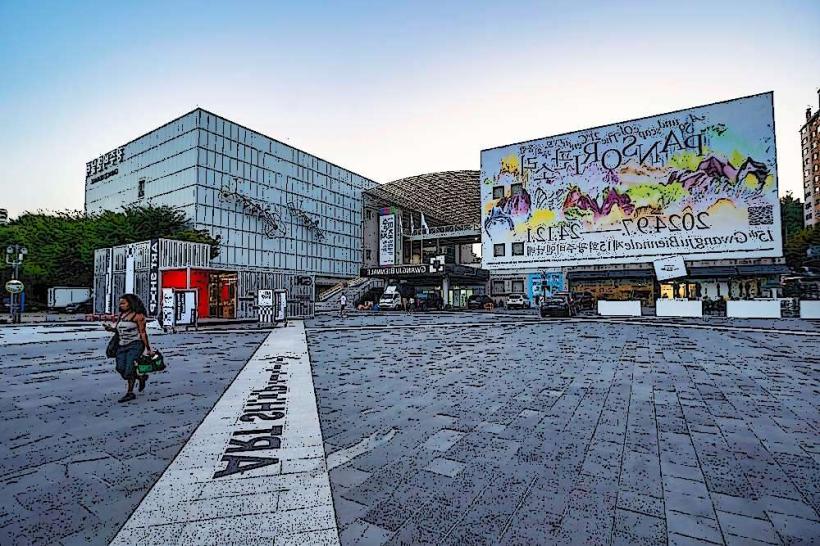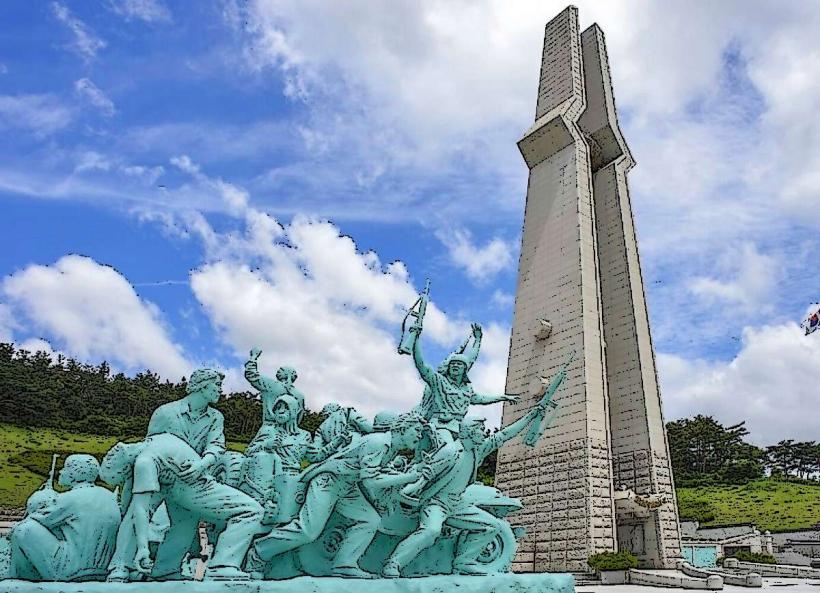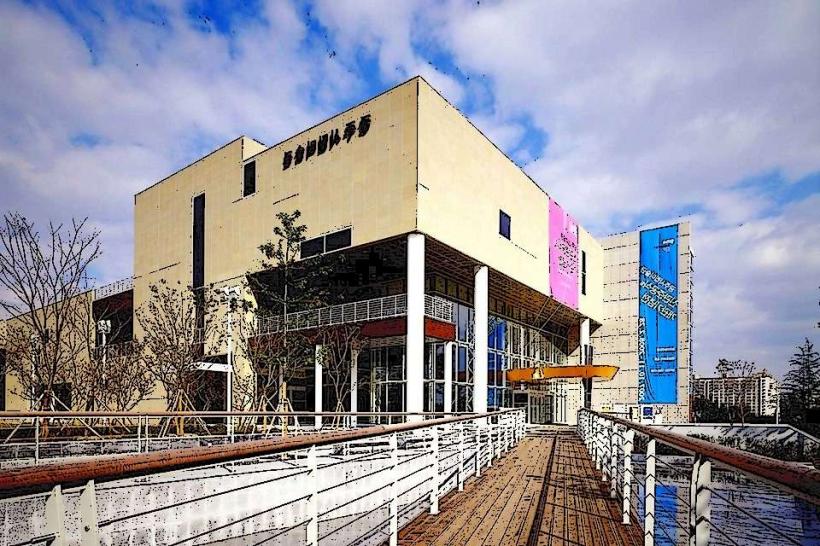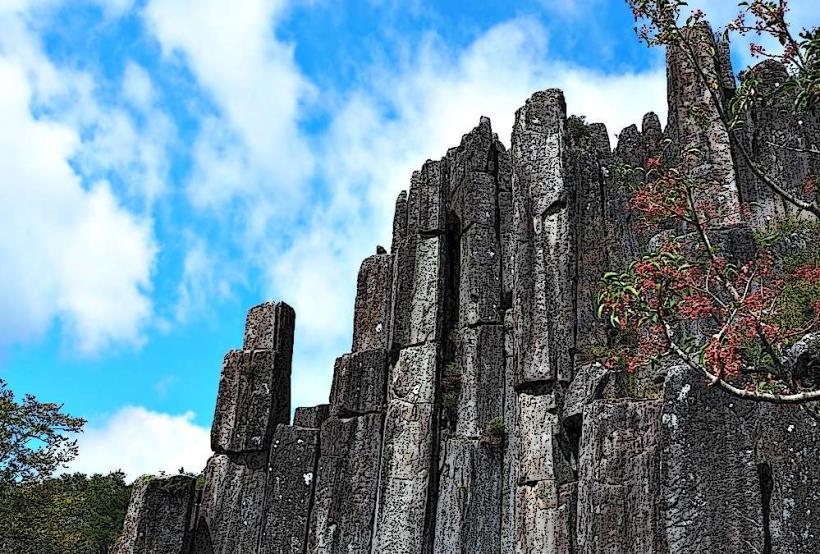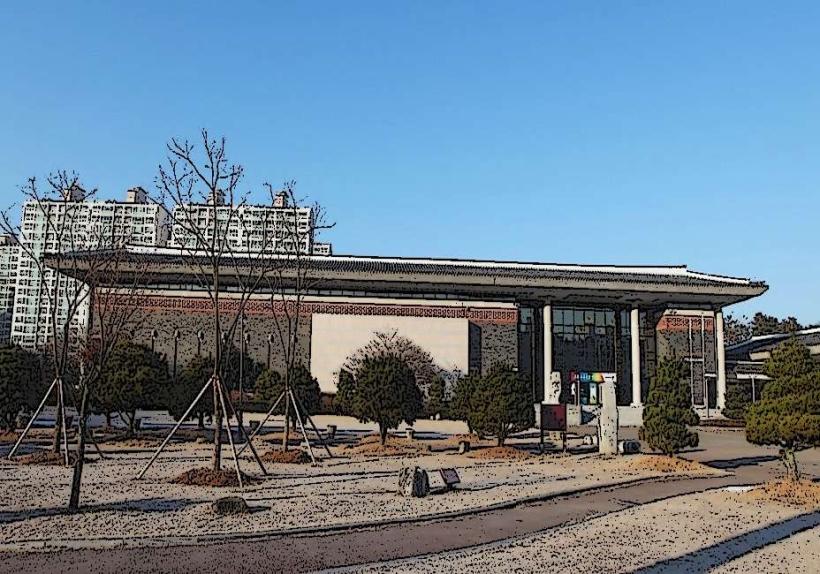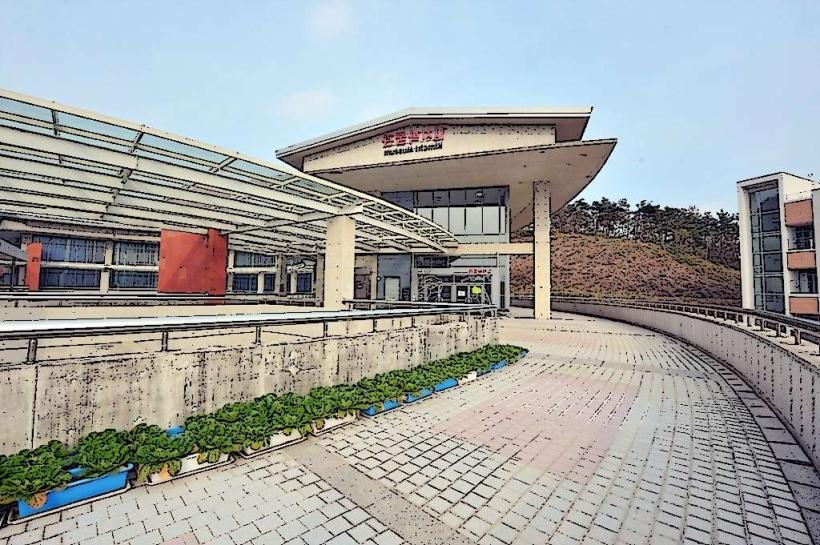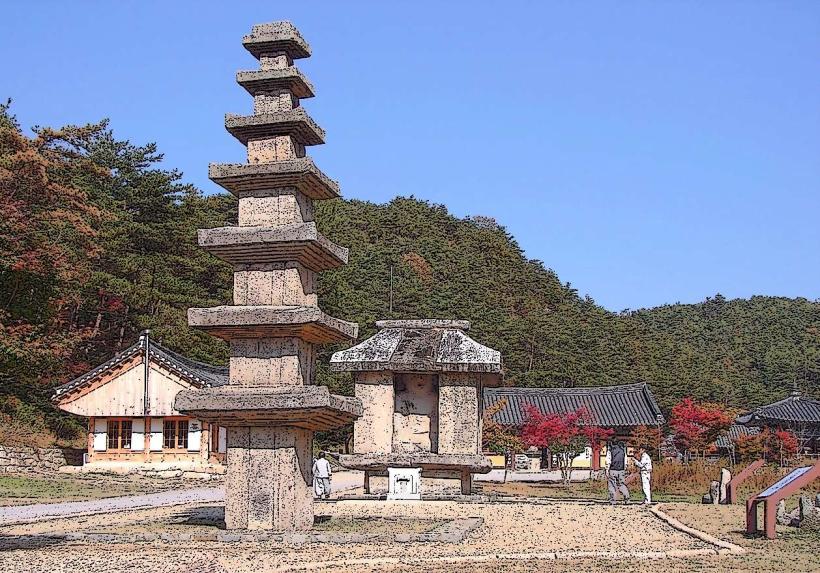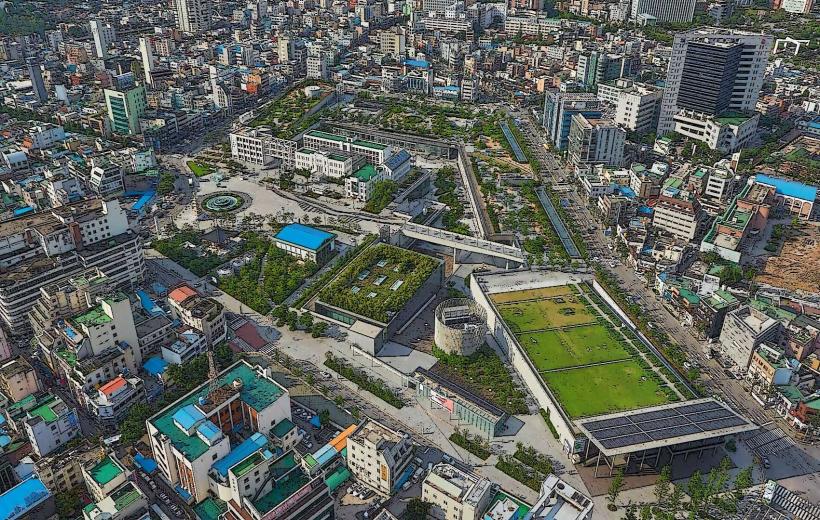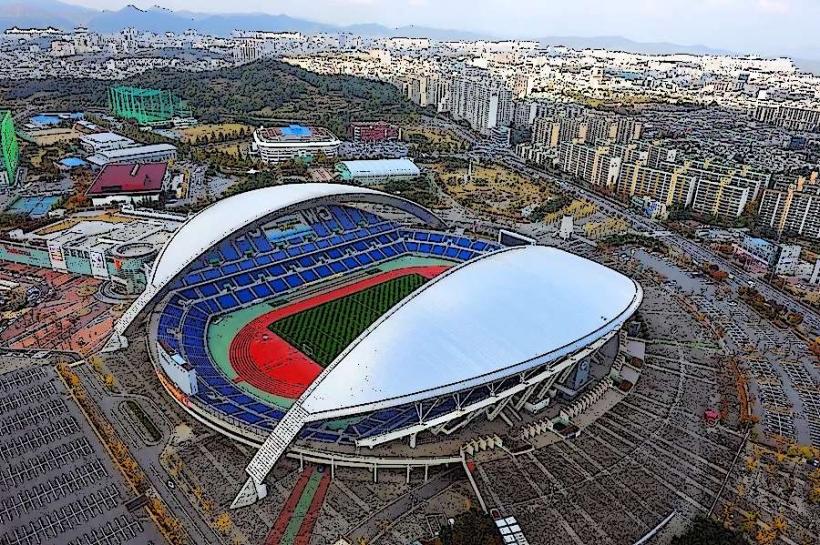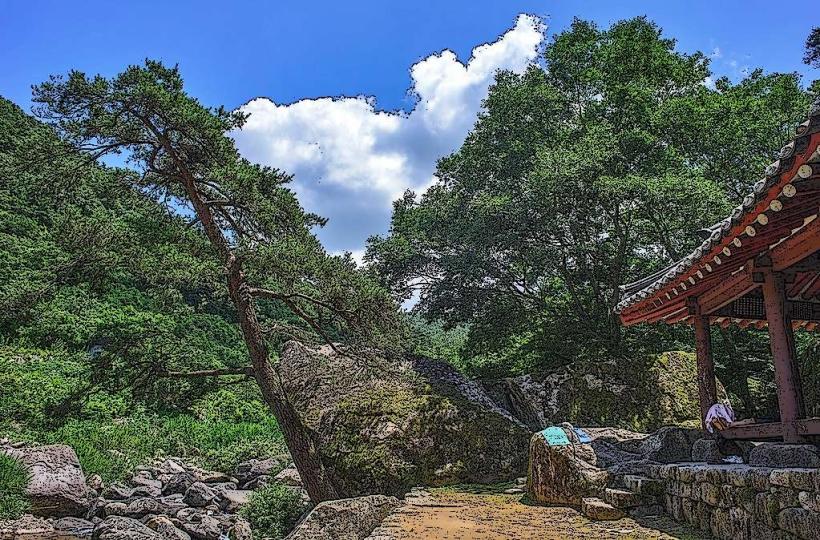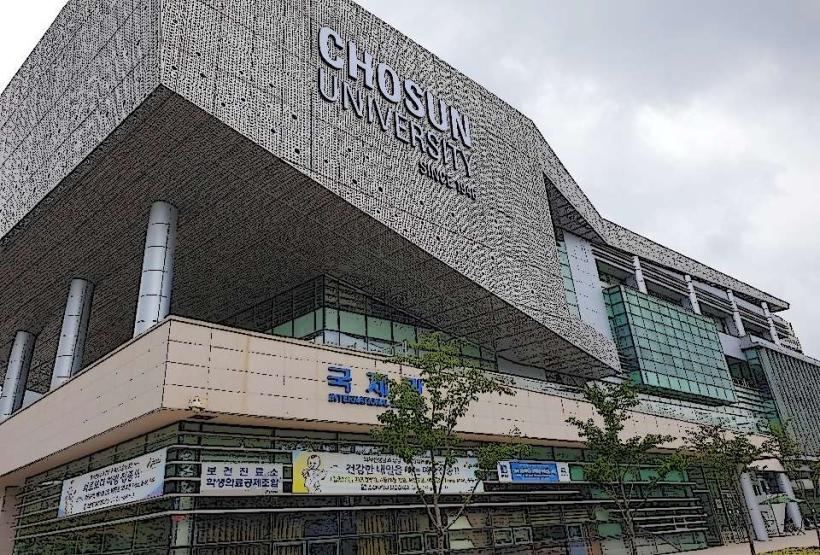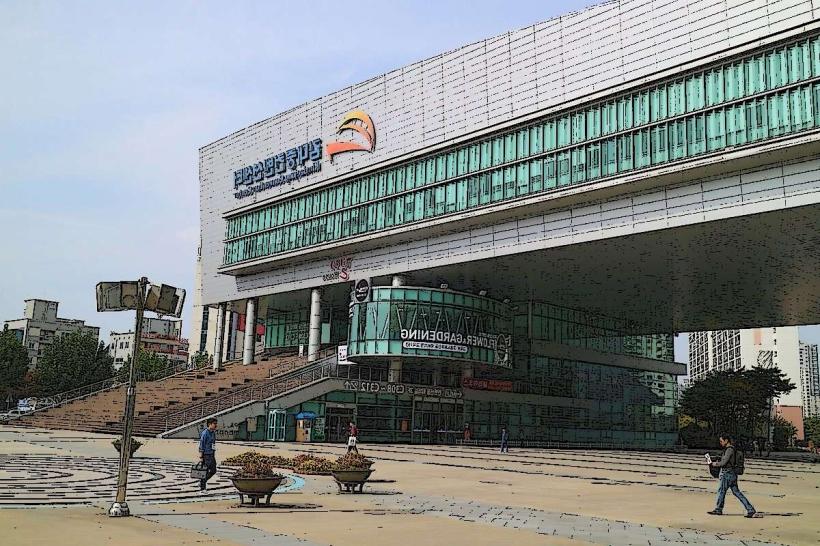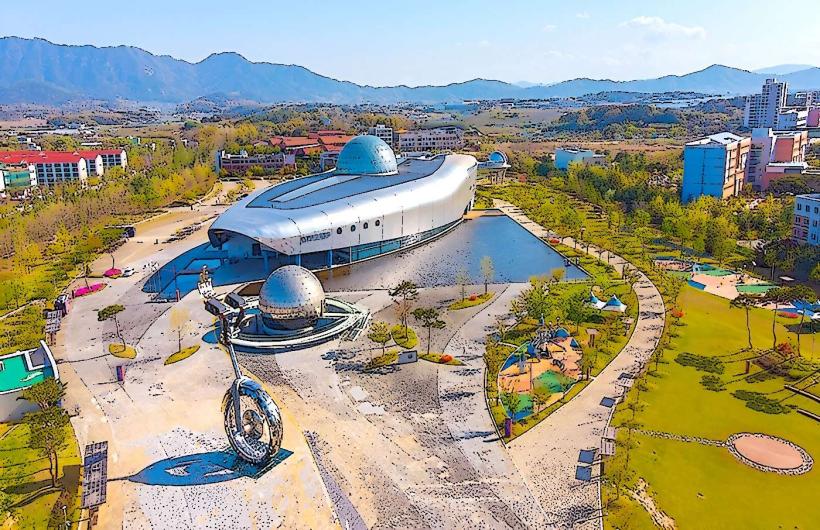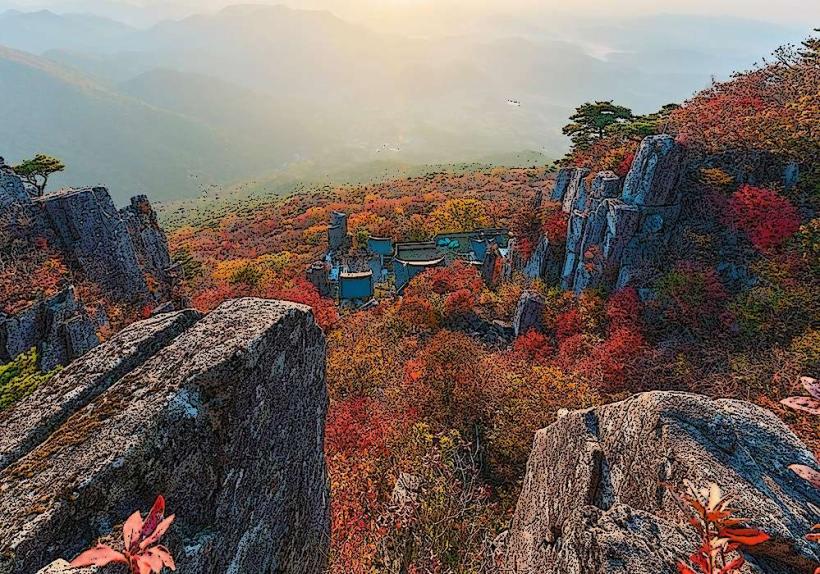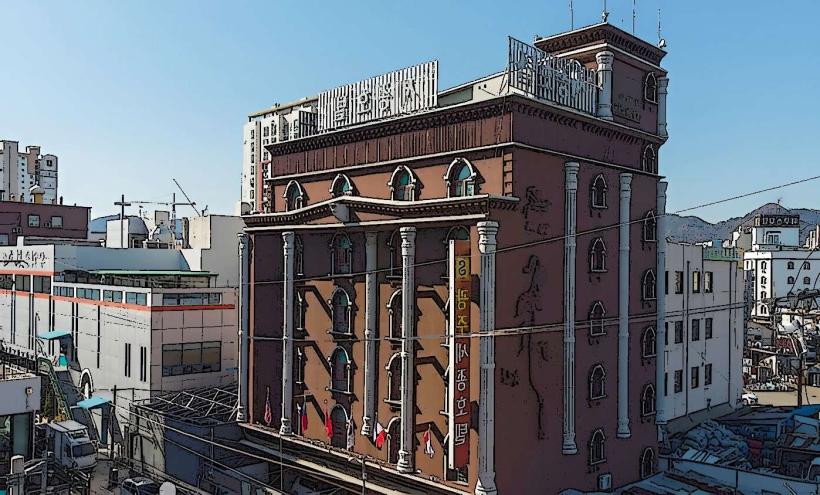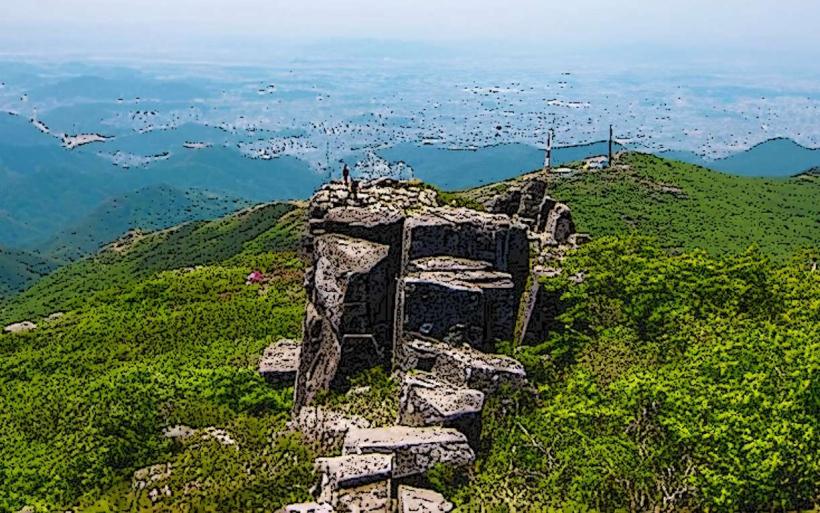Information
Landmark: Gwangju National MuseumCity: Gwangju
Country: South Korea
Continent: Asia
Gwangju National Museum, Gwangju, South Korea, Asia
The Gwangju National Museum is a cultural institution located in Gwangju, South Korea, dedicated to preserving and exhibiting the region's historical and artistic heritage.
Visual Characteristics
The museum complex consists of several interconnected buildings constructed primarily from concrete and glass. The main exhibition hall features a low-profile, horizontal design with a prominent, gently sloping roof. Exterior walls are a neutral gray concrete, contrasting with large glass panels that allow natural light into interior spaces. The grounds are landscaped with trees and open lawn areas.
Location & Access Logistics
The Gwangju National Museum is situated approximately 5 kilometers west of Gwangju city center. Access is via Gwangju Metropolitan City Road 58 (Mudeung-ro). Public transport options include bus lines 160 and 160-1, which stop directly in front of the museum. Limited on-site parking is available for visitors.
Historical & Ecological Origin
The Gwangju National Museum was established in 1978. The current main building was completed in 1997, designed by architect Kim Seok-chul. Its purpose is to collect, conserve, research, and display artifacts related to the history and art of the Gwangju and Jeollanam-do region.
Key Highlights & Activities
Visitors can explore permanent exhibition halls covering prehistoric times, the Goryeo Dynasty, the Joseon Dynasty, and modern Korean art. Special exhibitions are held periodically. The museum also offers educational programs and workshops. Photography is permitted in designated areas.
Infrastructure & Amenities
Restrooms are available on each floor. The museum has a cafe and a museum shop. Limited seating is provided in exhibition areas. Cell phone signal (4G/5G) is generally strong within the museum complex.
Best Time to Visit
Weekdays are generally less crowded than weekends. The museum is open year-round, with no specific seasonal restrictions. Optimal viewing of exhibits is during standard operating hours, typically 10:00 AM to 6:00 PM, with extended hours on certain days.
Facts & Legends
The museum houses a significant collection of celadon pottery from the Goryeo Dynasty, renowned for its intricate inlaid designs and jade-green glaze. One notable piece is a celadon vase with a crane and cloud motif, considered a masterpiece of Goryeo craftsmanship.
Nearby Landmarks
- 5km East: Gwangju Art Museum
- 3km Southeast: Mudeungsan National Park
- 4km Northeast: Gwangju World Cup Stadium
- 2km South: Gwangju Museum of Art

